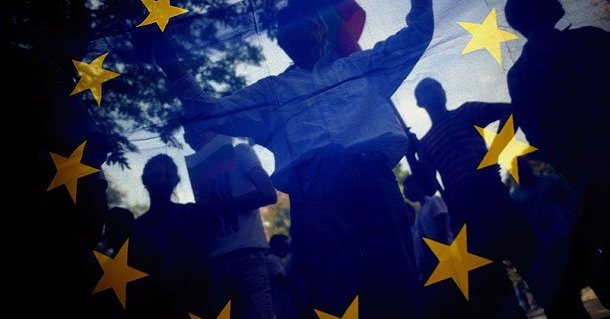Civil society in modern European democratic governance
Given the great distance between European institutions and citizens in the EU nowadays, information technology appears ideally suited to bridge the communications gap. After all, the Internet facilitates the ability of citizens to gather information about current European affairs, mobilize community networks, create diverse coalitions around policy problems, and lobby elected representatives. Citizens’ participation leads to democratic governance.
Today many international NGOs have access to European decision-making institutions. However, relations between civil society and institutions have never been very productive. The success of participatory governance depends on both a robust state and an active civil society with healthy levels of civic engagement. The idea of empowered and active citizenship is important not only during the European Year of Citizens, but it must be realized in the near future if the EU wants to maintain social progress, democratic life, and increase social capital through citizenship participation. But what is the current situation of European citizenship?
Civic Engagement in the EU
According to the Gallup Civic Engagement Index 2011, Ireland, the UK, and the Netherlands are the most civically engaged EU member states in contrast with Lithuania, Bulgaria, and Greece, which are the least civically engaged. Citizens’ engagement in public life is highly relevant for today’s societies, as active citizenship and a vibrant civil society are regarded as crucial for a healthy democracy. Very important indicators of the stability of democracy are measured and compared by level of civic engagement. The Nordic countries have above average levels of engagement in comparison with the Southern and Eastern European countries. To add, according to the Freedom in the World Index, the Nordic countries score the highest on political rights and civil liberties, while Bulgaria, Greece, Hungary, Latvia, and Romania are at the bottom of the democracy scale in Europe.
Theoretically, democracy fosters political and civil freedoms, which increases civic activities. Participatory democracy leads to voluntary activities and the formation of organizations that foster democratic governance.
On the other hand, other studies have also pointed to the strong correlation between the wealth of a country and its levels of democratic and participatory culture. As a result, the degree to which citizens can participate in political and public life depends on their social and economic integration into the society, particularly in Eastern and Southern countries.
Even if signing petitions, taking part in European Citizens’ Initiatives (ECI), boycotting or manifesting do not in general require much resources or time commitment, better educated citizens have more time, money, and access to information, in order to become politically involved. Many others lack the financial means and motivation to be involved in any association, however. In summary, only increasing levels of social inequality and social exclusion can threaten equal citizenship in the European Union. 2013 is the year for European institutions to enable active citizens’ participation and increase social and cultural capital, which is crucial for a civic-minded EU.

Follow the comments: |
|
